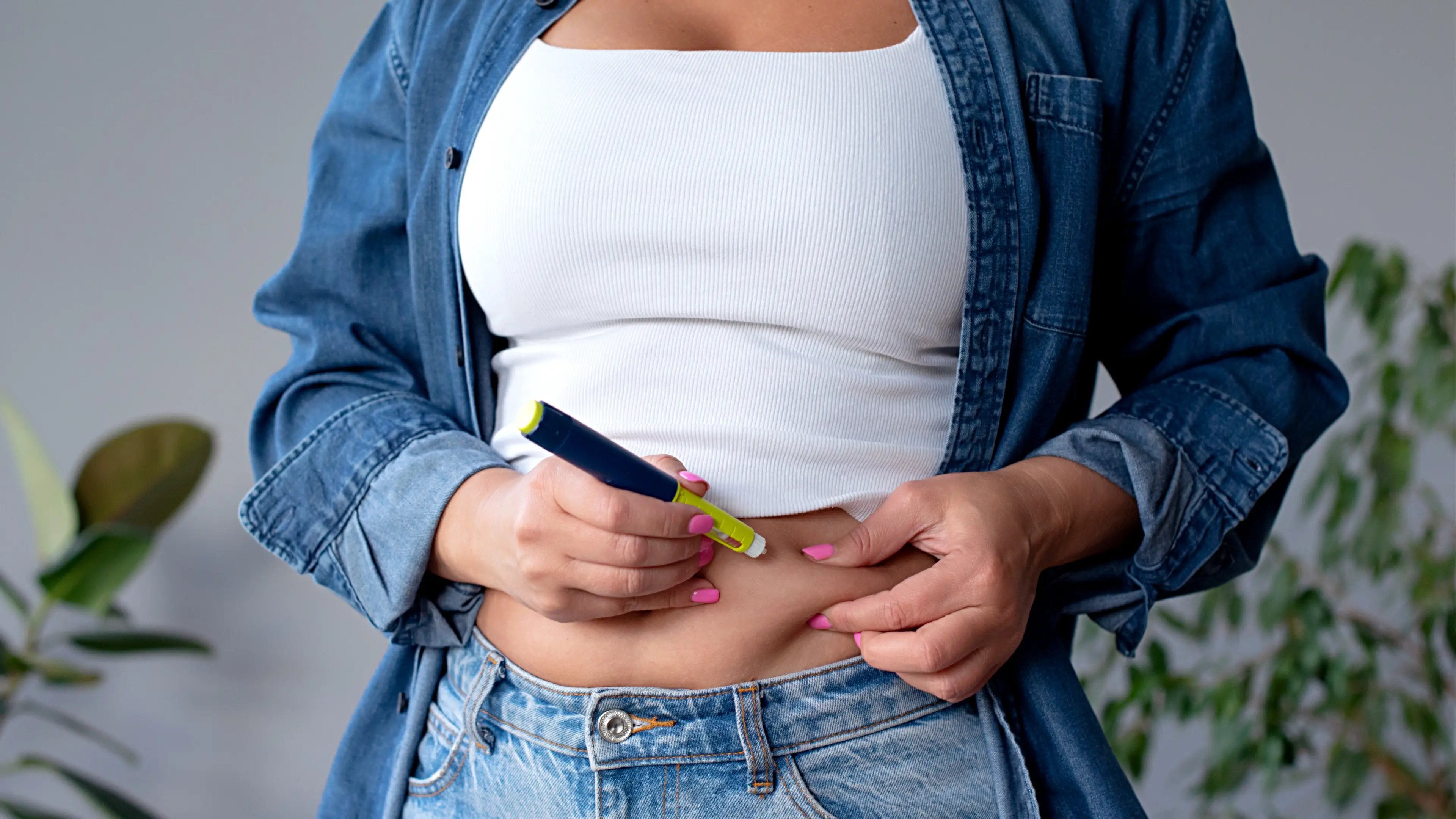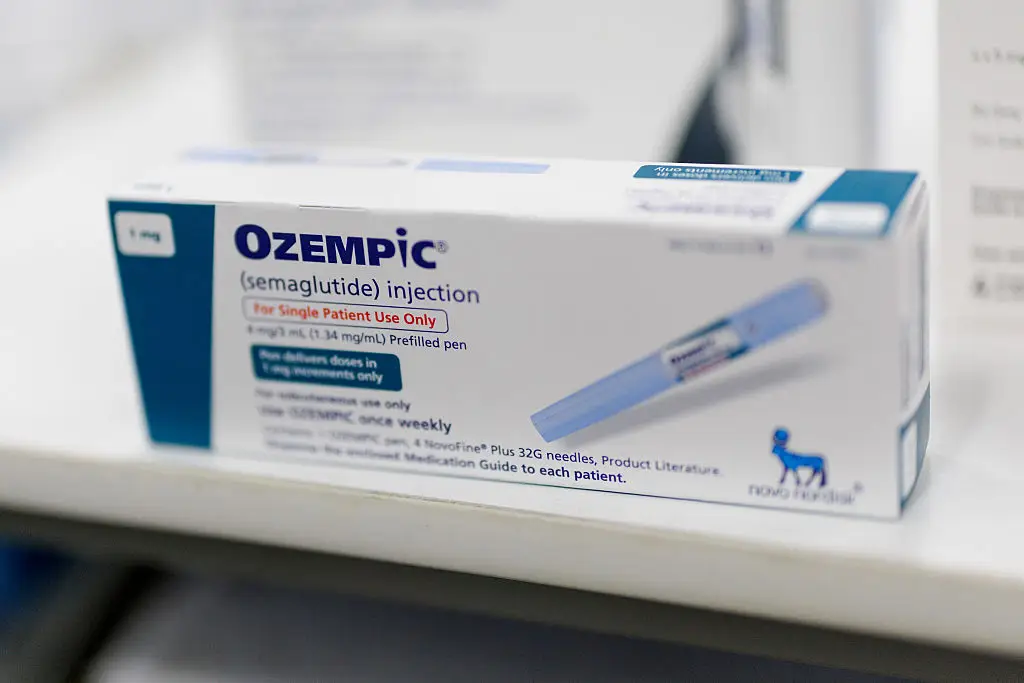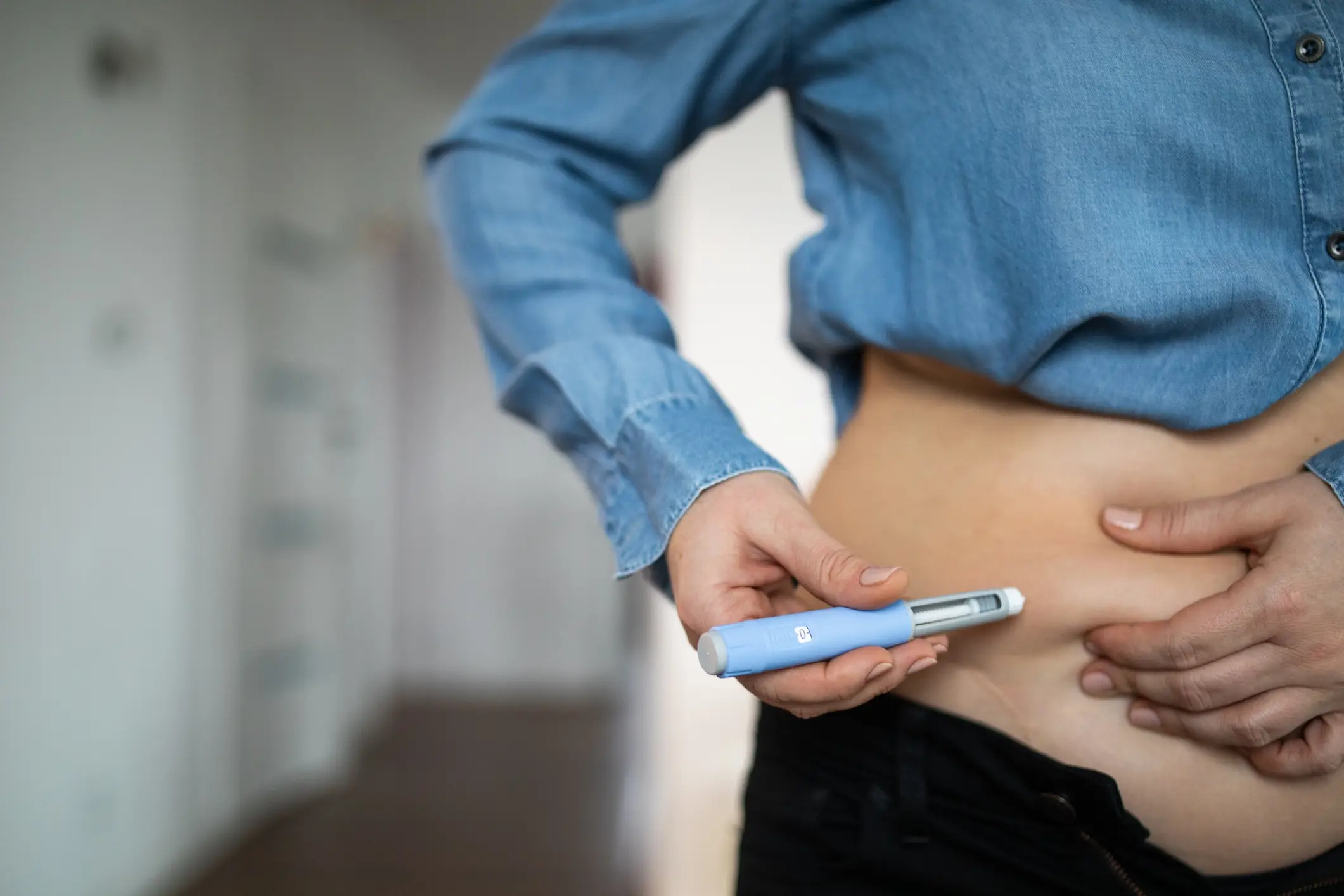
A woman who tried a weight loss craze that involved micro-dosing a GLP-1 drug has revealed what it did to her body.
Although Ozempic isn't approved as a weight loss medication, it hasn't stopped dozens of patients from rejoicing in this side effect of the drug.
Meant to treat Type-2 diabetes, its active ingredient semaglutide has a knack for suppressing appetite and reducing cravings, making it Hollywood's new go-to when it comes to shedding some stubborn pounds.
However, a new trend has since emerged among patients looking to get more bang for their buck with the medication.
Advert
In February this year, a 25-year-old woman from Michigan revealed she had been micro-dosing Ozempic.
A pre-filled injector pen contains four doses, starting at 0.25mg before increasing each time to a limit of 2mg, and is usually self-administered once a week.

Yet dozens of patients have taken to social media to document their micro-dosing journey, explaining how they want to stretch the fat-jab from four doses to five or six.
And while many have said the hack has worked wonders, with Madison Burgess saying it's helped her shed a whopping 60lbs in two years, others haven't been so convinced.
Writing in The Independent, Charlotte Cripps put the theory to the test, revealing how she has been splitting her 1mg dose in half to 0.50mg and spacing out the doses fortnightly as opposed to every week.
The author said she does this as it saves money and still seems to 'do the trick', all while dodging some of Ozempic's well-known narly side effects like nausea and fatigue.
"The idea behind microdosing is that you may be able to get the same benefits with less of the drug. There are no specific studies to compare microdosing regimes with approved dosages, so nobody has a clue about how safe it is," Cripps penned before waiving away concerns since smaller doses seem 'much more palatable' than 'going full-throttle Ozempic.'

"But take it from me, it’s not. Counting the clicks is no way to live," she continued.
The reporter admitted that the drug did indeed help her lose up to a fifth of her body weight within a year and also restored her cholesterol levels to normal - but it all came at a cost.
Cripps said she felt 'miserable' and at risk of a nutritional deficit as well as muscle wastage.
As a vegetarian, where a high protein diet is a little trickier, Cripps said: "I ended up eating so much high-protein yoghurt with nuts and blueberries that I couldn’t go on. I lost the will to live. I had no social life."
She also described how she skipped out on dinner with friends and her children in exchange for a calorific protein drink.
According to Medical News Today, it's currently not known whether micro-dosing semaglutide is 'safe or effective', particularly in cases where Ozempic is approved to reduce other health risks like cardiovascular problems.

On the other hand, users who have tried the hack say smaller doses keeps vomiting, nausea, constipation and other side effects at bay.
For Madison, the side effects were so severe on a full dose that she couldn't eat anything at all until her doctor recommended the micodosing approach.
"I’m a big advocate now of microdosing," she said. "Going slow and staying low is my motto nowadays and I think it’s better for long-term results."
However, as for the columnist, Cripps decided it simply isn't worth it.
She said while it helped her 'reset' her eating habits and shed some excess weight, she now considers herself 'free from the hell of micro-dosing'.
UNILAD has contacted Novo Nordisk for comment.
Topics: Ozempic, Health, Drugs, Social Media